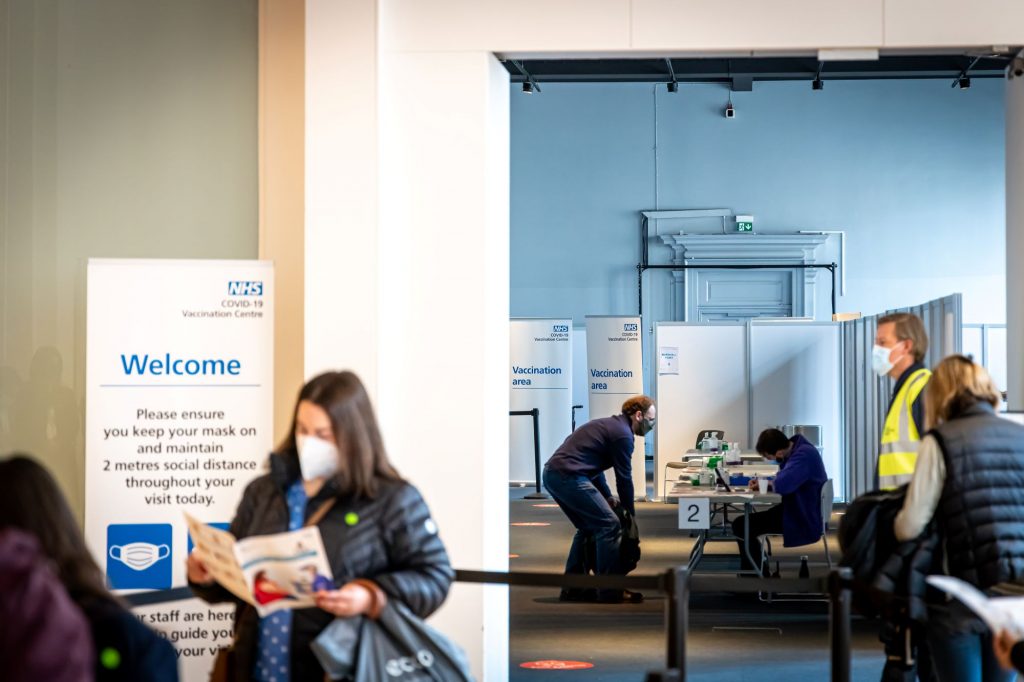
PPIE Award Winner: “Community experiences in Greater Manchester during Covid-19 and attitudes towards vaccinations” research study and advisory group
In this blog series we will be featuring our award winners and highly commended recipients from the Faculty’s ‘Outstanding Contribution to PPIE’ awards. Showcasing the inspirational and outstanding commitment to PPIE that has made a positive difference to our community and highlighting the amazing events, activities, people and groups from across the Faculty.
Our third blog in this series will feature the “Community experiences in Greater Manchester during Covid-19 and attitudes towards vaccinations” research study and advisory group. The project were joint winners in the Inclusivity category at the 2022 awards.
Large inequalities persist in the uptake of the covid-19 vaccination programme, as well as inequalities in the impacts of the virus, with more deprived areas and those from ethnic minority backgrounds facing higher case and mortality rates. Prior public engagement work undertaken by the team has highlighted the importance of exploring experiences and views around various factors during the pandemic including misinformation and communication, trust towards institutions, and health and safety concerns towards the vaccine. Alongside this, more deprived areas faced greater losses to economic productivity, greater job losses and worse impacts to mental health.
The aim of the research was to better understand the experiences of marginalised groups that have been disproportionately impacted by the pandemic in Greater Manchester, and to gain an understanding of the barriers to the covid-19 vaccination. Setup from the NIHR ARC-GM PCIE Forum and Panel, the advisory group co-designed the research project, including scope, materials for participants, supported recruitment to the study, co-facilitated research focus groups with members of these marginalised groups, and analysing findings.
The Advisory Group was composed of public and community contributors, as well as representatives from the voluntary sector and partnered with the research team to co-design the research from the inception phase. The Advisory Group were uniquely placed to feedback and input over the relevant topics that the research would cover, including those of a sensitive nature, promoting the views and experiences of seldom-heard communities. Members of the group also had links and contacts within voluntary and charity organisations across Greater Manchester, including Awakening Minds and the Caribbean and African Health Network.
Starting from a position of and respectful online public discussions with diverse community groups, including ethnic minorities and those with long-term health conditions, issues were identified that aided in better understanding of the drivers behind inequalities in vaccine uptake. From these discussions, it was clear that social, cultural and historical factors played a significant part in an individual’s decision to have the vaccine or not. These included: existing distrust of the vaccine stemming from institutional and inter-personal racism; previous experience of culturally insensitive healthcare, and awareness of previous unethical healthcare research.
The research team also worked with young adults to generate understanding of their attitudes to the COVID-19 vaccination programme. This included online discussion groups composed of people such as young carers and members of the Caribbean African Health Network and Made By Mortals.
Embarking on a series of engagement initiatives meant that the team were able to capture shifts in the public’s views and priorities, rather than a snapshot of what was influenced by prominent news stories at the time. This meant the scope and design of the research reflected this, in an iterative manner with the public engagement that informed the research design throughout the lifespan of the project.
The work performed by the Advisory Group and the research team was of considerable importance to Greater Manchester, helping to inform a regional vaccine delivery programme. Additionally, it demonstrated how public and community support can be applied to wider health interventions.
Find Out More:
- Exploring experiences during the COVID-19 pandemic and inequities in the vaccination rollout: insights from the public community involvement and engagement (PCIE) work
- Vaccine Equity Study – Advisory Group, Stephanie Gillibrand
Follow the Group on Twitter:
- @ARC_GM
- @carolin_sanders
- @Mons93Stephanie
- @RuthWatkinson
- @AneelaMcAvoy
- @JoannaARC_GM
- @cahn_uk
- @charleskod
- @basmaissa68

0 Comments